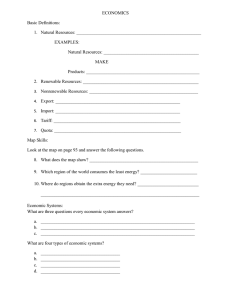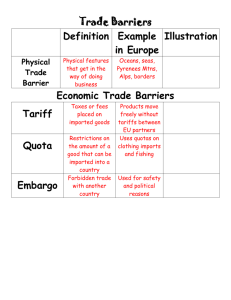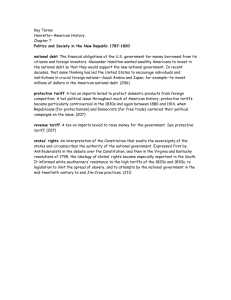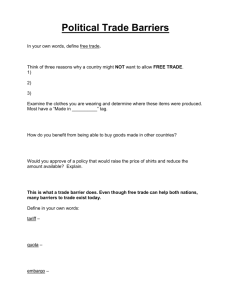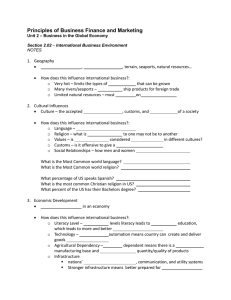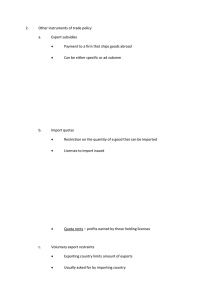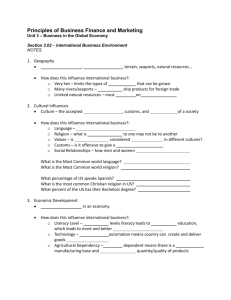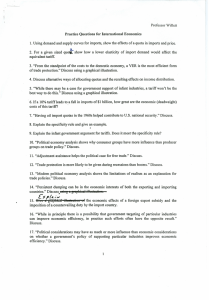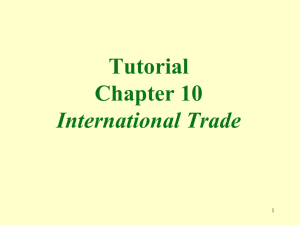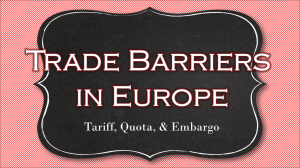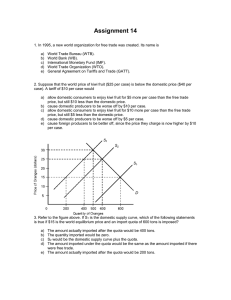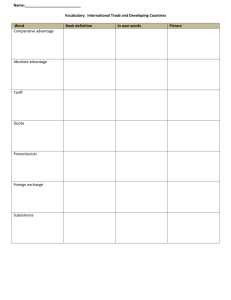week 4
advertisement
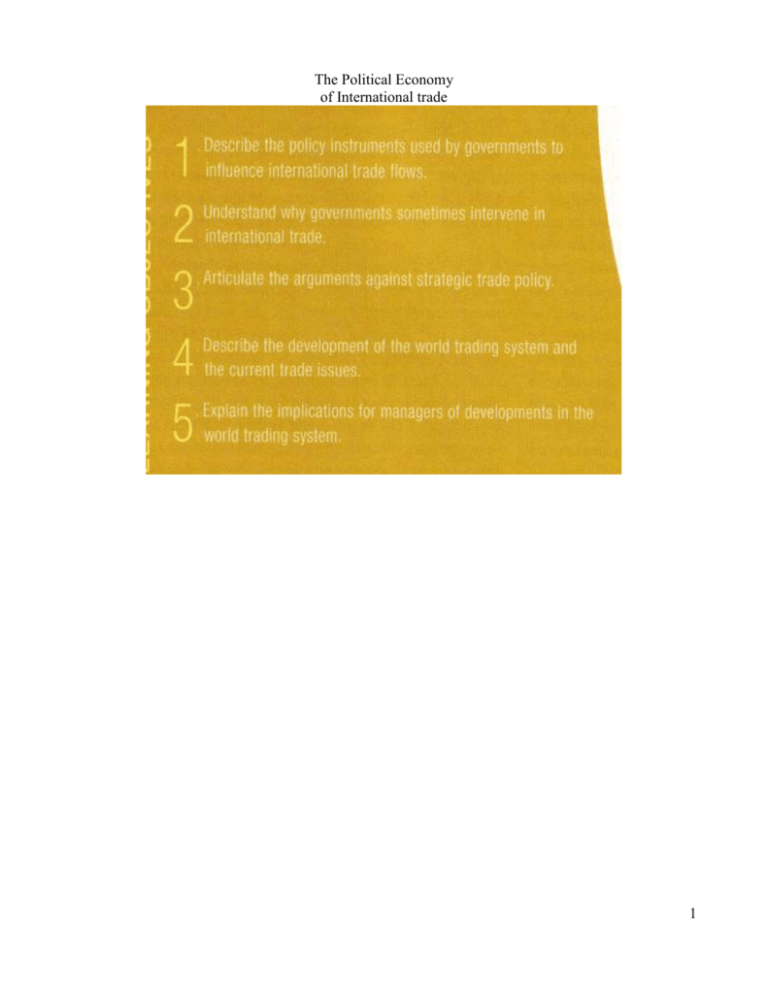
The Political Economy of International trade 1 2 3 Instruments of trade policy Tariffs A tariff is a tax levied on imports(or export) Two categories of tariff: 1) special tariffs are levied as a fixed charge for each unit of a good imported ($3.00 per barrel of oil) 2) Ad valorem tariffs are levied as a proportion of the value of the good. Who wins, who looses Government gains because tariff increase their revenues. Domestic producers gain because the tariff provides them with some protection against foreign competitors by increasing the the cost of imported foreign goods. Consumes lose because they must pay more for certain goods. Subsidies A subsidy is a government payment to a domestic producer. Many forms of subsidies: cash grants, low-interest loans, tax breaks, and government equity participation in domestic firms. In practice subsidies are not that successful at increasing the international competitiveness of domestic producers. They tend to protect the inefficient and promote excess production. 4 5 Import quotas and voluntary export restraints An import quota is a direct restriction on the quantity of some good that may be imported into a country. For example, the US has a quota on cheese imports. The only firms allowed to import cheese are certain trading companies, each of which is allocated the right to import a maximum number of pounds of cheese each year. A voluntary export restraint is a quota on trade imposed by the exporting country, typically at the request of the importing country's government. Local content requirements a local content requirement is a requirement that some specific fraction of a good be produced domestically. Local content regulations provide protection for a domestic producer of parts in the same way an import quota does: by limiting foreign competition. Administrative policies Administrative policies are bureaucratic rules designed to make it difficult for imports to enter a country. Antidumping policies. Dumping is defined as selling goods in a foreign market at below their costs of production. Antidumping policies are designed to punish foreign firms that engage in dumping. The ultimate objective is protect domestic producers from unfair foreign competition. 6 7
